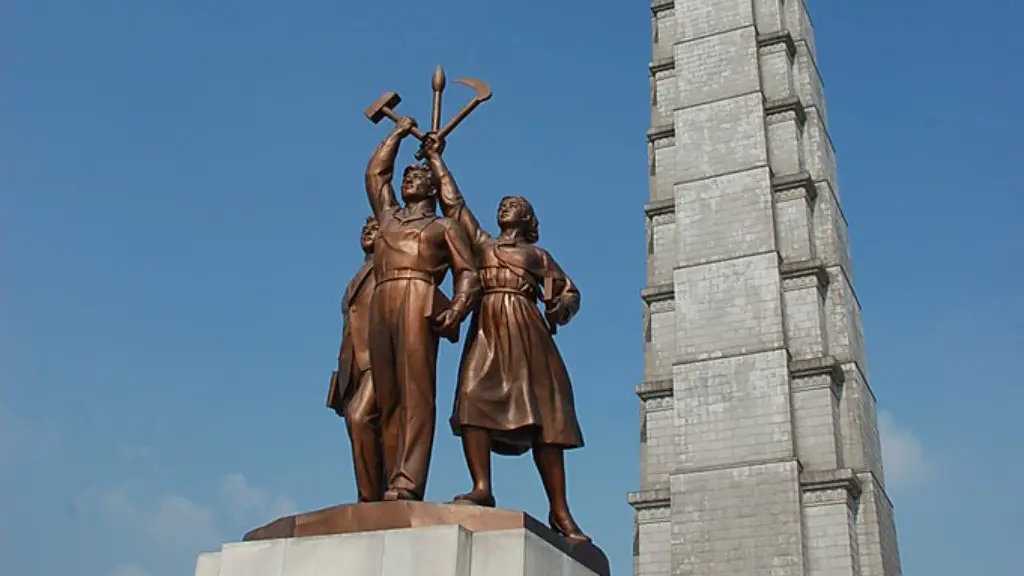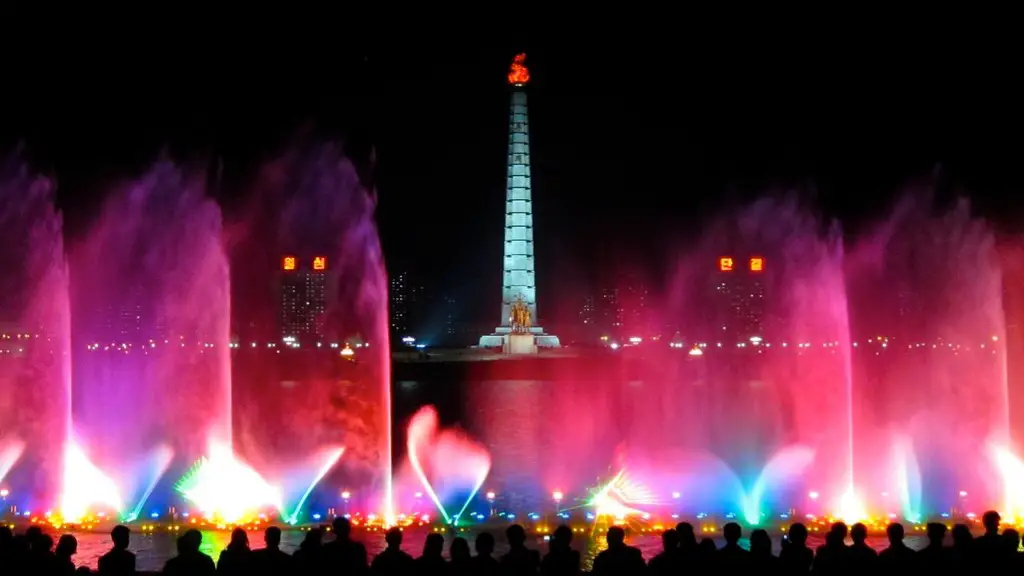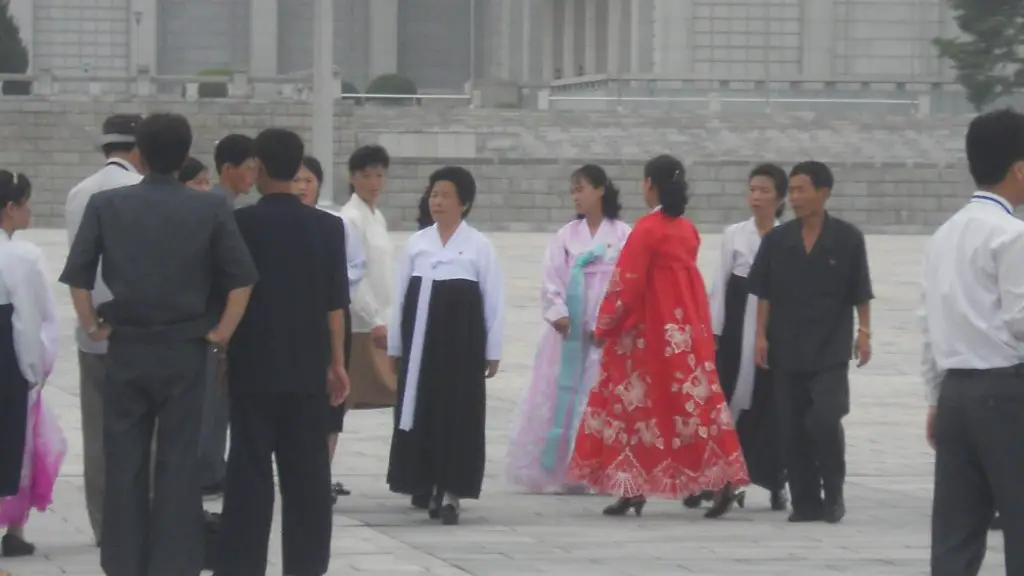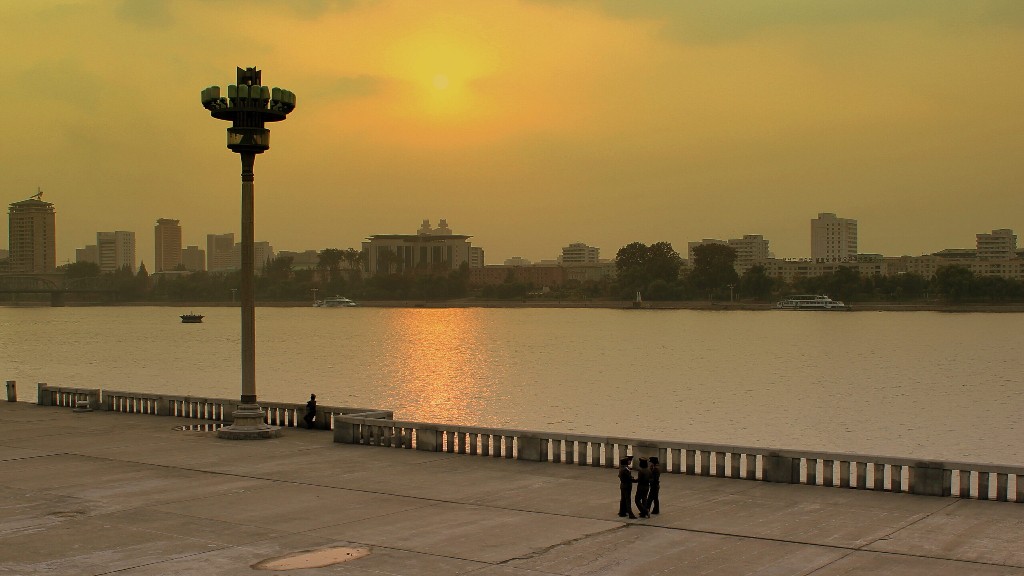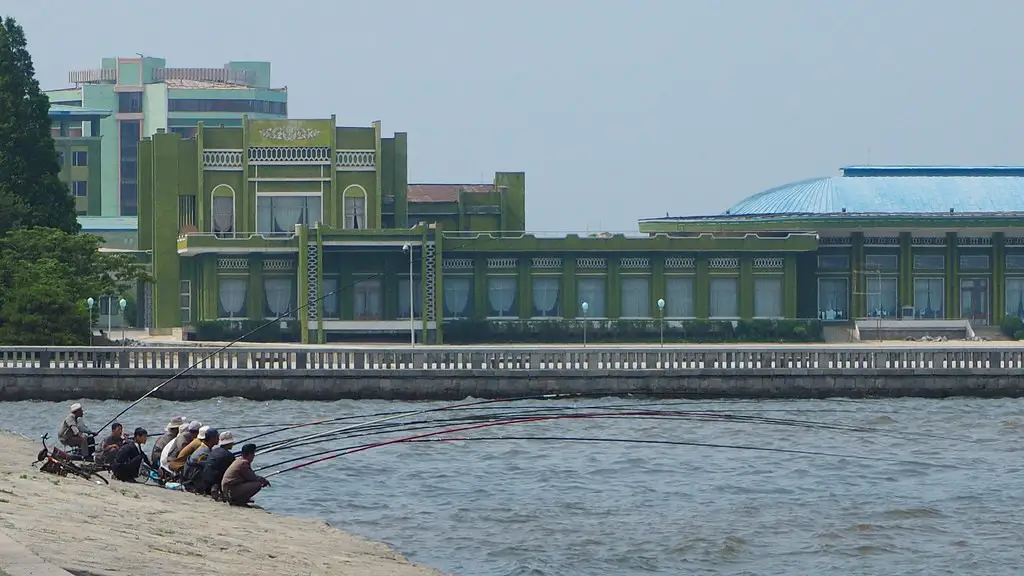The Soviet Union
The Soviet Union was the first big supporter of North Korea after WWII. The two states signed the Treaty of Friendship, Cooperation and Mutual Assistance in 1949. The Soviets were quick to provide the North Korean regime with military aid and equipment, as well as Economic and Technical Assistance in the form of loans and trade deals. Many of the key figures in the North Korean government were educated in the Soviet Union and they naturally maintained strong links with their homeland. They also went on to promote the ideology of Marxism-Leninism as the core of North Korean governance.
The Soviet Union also provided economic support to North Korea in the form of financial aid, mostly through subsidies and trade credits. Up until the fall of the Soviet Union in 1991, North Korea had maintained a positive trade balance with the Soviets. Additionally, the Soviet Union gave North Korea access to their nuclear technology, which enabled them to develop their own nuclear weapons programme.
North Korea also received military and intelligence assistance from the Soviet Union, with the Soviets providing military equipment, technical advisors and training in the use and maintenance of this equipment. The Soviets also provided support in the form of intelligence gathering, which North Korea relied on in order to maintain its hostile stance towards South Korea and the West.
China
North Korea also received support from China, with the two states signing a Mutual Aid and Cooperation Friendship Treaty in 1961. Relations between Communist China and North Korea had been strong since the Korean War, and China provided North Korea with economic aid, military support and political representation. Since then, China has become North Korea’s closest ally and has consistently provided them with economic and military assistance. During the Cold War period, China was the main source of military weaponry and technological expertise for North Korea.
Furthermore, Chinese aid has increased significantly over the last few years, especially in light of the deteriorating situation on the Korean peninsula. China is North Korea’s biggest trading partner by far and has provided them with a steady stream of food and fuel, which has been essential for the North Korean economy. Additionally, China has served as a buffer between North Korea and the international community, preventing the US and its allies from imposing harsher economic sanctions on North Korea.
In addition to economic support, China gives political and technical assistance to North Korea in the form of political representation at UN meetings and support for North Korean diplomatic initiatives. China has also provided technical support to North Korea in their pursuit of nuclear weapons and ballistic missile programmes, helping to ensure that they are able to maintain their standing as a nuclear power.
Cuba
North Korea has also received support from Fidel Castro’s Cuba, as the two states have been allies since the days of the Cuban Revolution. Cuba was one of the first Latin American states to recognize North Korea, and has maintained close ties with the North Korean regime for decades. Cuba has provided North Korea with financial aid and trade credits, as well as technical assistance in the fields of defence and nuclear technology.
Cuba also provides North Korea with political representation at the UN, with Cuba’s then president Raul Castro serving as North Korea’s ambassador to the UN in 2019. Recently, there have been reports of closer political and military ties between the two states, with North Korea reportedly sending troops to Cuba to train in urban warfare. Additionally, there have been reports that North Korean missile experts have visited Cuba in order to help them develop their ballistic technology.
In addition to providing aid and assistance, Cuba is one of the few countries that openly supports North Korea’s nuclear weapons programme. Cuba has also expressed support for North Korea’s actions in the past, such as their pursuit of nuclear disarmament, and has criticised the US lead sanctions against North Korea.
Middle Eastern States
In addition to the USSR, China and Cuba, North Korea has also found support from several Middle Eastern states. North Korea has maintained close ties with Iran for decades, and the two states have conducted numerous joint military exercises in the Gulf. In return, Iran has allegedly provided North Korea with financial support and technical assistance, as well as political representation at UN meetings.
North Korea has also maintained close ties with Iraq and Syria, and there have been reports that both of these countries have provided intelligence and defence-related assistance to North Korea. The two states have also been accused of providing North Korea with financial assistance, although this has not been officially confirmed. North Korea has also received economic assistance from Libya and Yemen, with the two states allegedly providing North Korea with trade credits and loans.
Finally, North Korea has received support from several smaller Middle Eastern states, such as Qatar and the United Arab Emirates. Both of these countries have provided North Korea with political support, as well as economic and technical assistance. These countries have also attempted to mediate between North Korea and the international community in order to resolve the on-going tensions in the region.
Conclusion
From the Soviet Union to Middle Eastern States, North Korea has had many supporters throughout the years. The main sources of support have been the USSR, China and Cuba, who have provided North Korea with military and economic aid and assistance. Additionally, North Korea has also found support from several Middle Eastern states, who have provided them with financial, political and technical assistance. The support of these countries has been crucial in allowing North Korea to maintain its position as a nuclear power in the region.
North Korean Economy
North Korea’s economy is heavily reliant on support from its allies, with China and Russia providing the bulk of their economic assistance. In the past, North Korea received economic aid and subsidies from the Soviet Union, but this source of support has largely dried up in the wake of the fall of the Soviet Union. Today, North Korea relies heavily on economic assistance from China, which accounts for over 90% of North Korea’s foreign trade.
In the absence of the Soviet Union, China has become North Korea’s main source of economic assistance, providing them with food and fuel subsidies, as well as technical and financial assistance. This aid has been essential for the North Korean economy, which is highly dependent on imports of food, fuel and other goods. Additionally, China’s political and diplomatic support has been instrumental in preventing the US and its allies from imposing harsher economic sanctions on North Korea, which could potentially have a devastating effect on their economy.
North Korea’s economic woes are further compounded by its fraught relationship with South Korea. South and North Korea have a long and troubled history, and the two states have been locked in a bitter dispute for decades. The economic embargo imposed by South Korea has resulted in a drastic reduction in North Korea’s ability to import goods, which has resulted in a steep decline in the North Korean economy in recent years.
Whole of Government Approach
Due to the complexity and severity of the North Korean problem, the international community has taken a whole of government approach to addressing the issue. The US, China and other regional partners have adopted a strategy of diplomacy, pressure and engagement in order to push North Korea to abandon its nuclear ambitions. This approach has included economic sanctions, combined with the offer of economic incentives and rewards if North Korea agrees to denuclearize.
The US has also employed a range of diplomatic efforts, such as the Six Party Talks, in an effort to resolve the North Korean crisis. The Six Party Talks have brought together the US, China, Russia, Japan, South Korea and North Korea in an effort to persuade North Korea to abandon its nuclear ambitions. In addition to this, the US has been pushing for a unified Korean Peninsula under South Korean rule, which would ensure peace and stability in the region.
In recent years, the international community has also sought to engage North Korea in dialogue and negotiations. Step by step agreements have been reached between the US and North Korea, with the ultimate goal being the complete denuclearization of the Korean Peninsula. So far, these agreements have been successful in slowing down the North Korean nuclear programme, albeit with a significant degree of uncertainty.
Russia’s Role
Russia has also become involved in the North Korean issue, with the Russian government taking a more conciliatory approach towards North Korea than the US. Russia has supported the US-led negotiations, while simultaneously maintaining strong economic ties with North Korea. Russia is one of the largest suppliers of fuel to North Korea, as it provides them with much-needed oil and gas to meet their energy needs.
In addition to providing economic aid, Russia has also sought to engage North Korea in dialogue and negotiations. Russia has sought to build closer ties with North Korea, and has engaged in diplomatic exchanges with them in the past. Russia has also urged North Korea to enter into negotiations with the US in order to resolve the Korean crisis, and has offered to mediate between the two sides in order to achieve a peaceful resolution.
Finally, Russia has sought to minimize the impact of international sanctions on North Korea, and has entered into numerous trade agreements with North Korean entities in order to provide them with economic assistance. This assistance has helped to prop up the North Korean economy in the face of economic sanctions, and has allowed them to continue their nuclear weapons programme despite the punitive measures being imposed on them by the international community.
